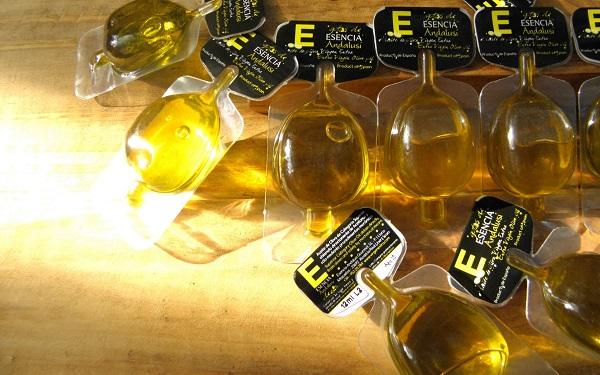Researchers at the Complutense University of Madrid (UCM) and the Scintillon Institute have designed a sensor that can detect counterfeit olive oil labeled as extra virgin or protected designation of origin. Laser diodes in the sensor detect fluorescencelevels in the oils, which differ slightly between the adulterated and pure extra virgin olive oils.
To test the system, over 450 binary blends composed of protected designation of origin extra virgin olive oil (PDO EVOO) in date were adulterated with expired PDO EVOO and analyzed using fluorescence spectroscopy. The researchers measured the fluorescence emission of each sample using a laser diode as a source light and calculated 20 chaotic parameters from the resulting spectra. They quantified the concentration of adulterant using chaotic-based regression models. The researchers validated their approach according to the leave-one-out cross-validation method. The results were promising (lower than 10 percent quantification error). 
The sensor can distinguish between apparently similar oils. Courtesy of Esencia Andalusí.
The sensor is manufactured on a 3D printer and is inexpensive to build. “Other clear advantages of our tool include the possibility of conducting on-site analyses, because the equipment is the size of a briefcase and therefore portable, and of generating results in real time,” said researcher José S. Torrecilla.
The sensor could provide inexpensive quality control and adulteration detection for PDO EVOO. “This technique is available for use at any time, and only requires oils prior to packaging for quality control or after packaging to detect fraudulent brands and/or producers,” Torrecilla said.

 contact@photonstream.com
contact@photonstream.com +86-755-84166678 +86-755-84861436
+86-755-84166678 +86-755-84861436


